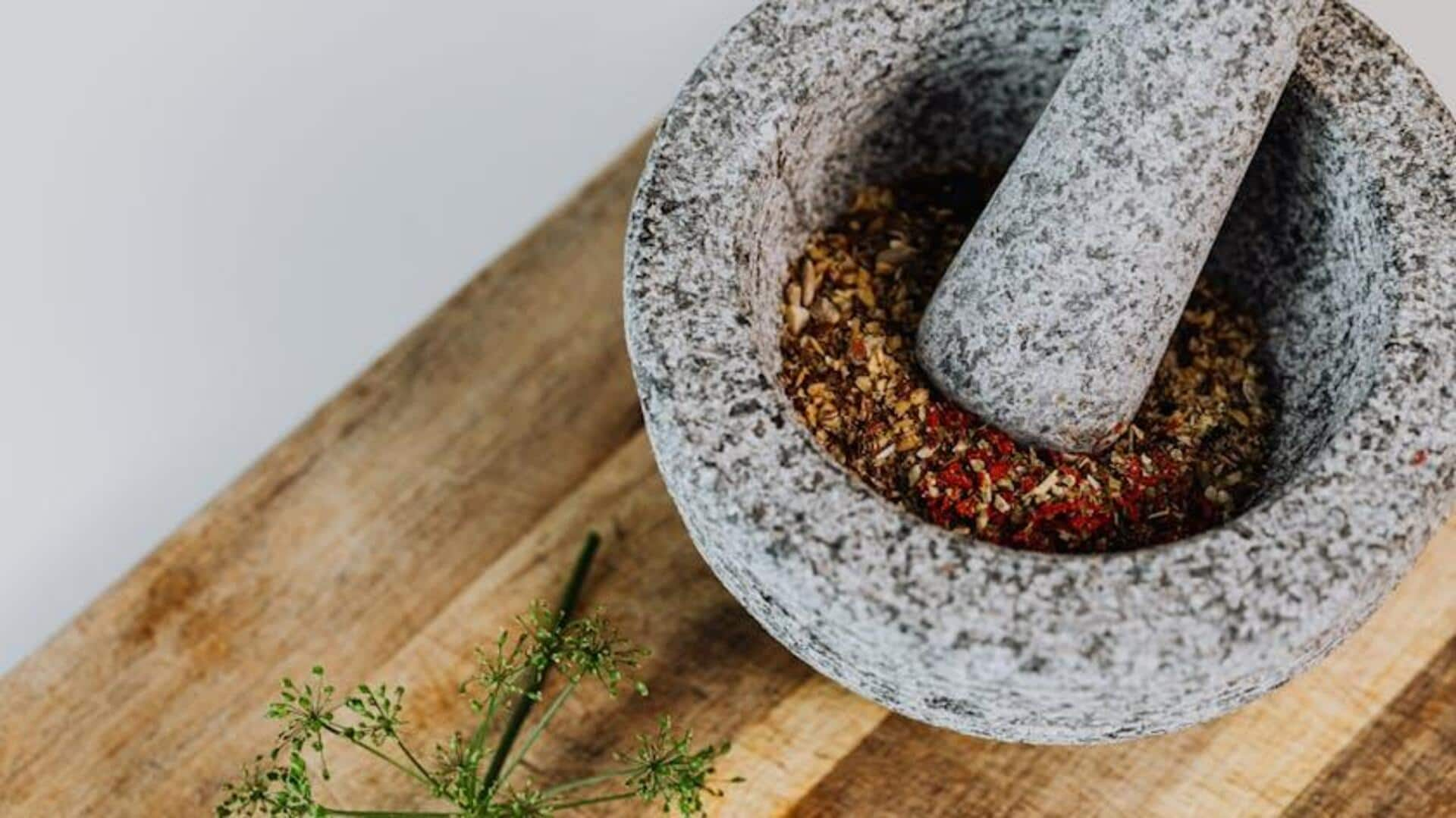
Strengthen your forearms with traditional African grinding techniques
What's the story
In many African cultures, the mortar and pestle are a staple for grinding food. This method of manual grinding has two benefits: it keeps the tradition of cooking alive and builds forearm strength. By imitating these techniques, you can build forearm muscular endurance with similar movements in your workouts, without needing any equipment from the gym.
Technique
Understanding the basics of mortar pounding
Mortar pounding requires a rhythmic up and down motion that engages the forearm muscles. To replicate this movement effectively for exercise, it's crucial to focus on the fluidity and consistency of the motion. You should stand or sit with stability, allowing your forearms to do the majority of the work while keeping your upper arms relatively still. This movement isolates the forearm muscles, providing a focused workout.
Weight training
Incorporating weighted movements
To mimic the resistance of traditional mortar pounding, you can use dumbbells or weighted wristbands. Starting with lighter weights ensures you can concentrate on form while avoiding injury. Incrementally increasing the weight over time will build endurance and strength in your forearm muscles, emulating the physical exertion of mortar pounding without the need for an actual mortar and pestle.
Repetition
Emphasizing repetition and consistency
Just as in mortar pounding, where ingredients are pounded repeatedly until they achieve the desired texture or consistency, training for forearm endurance necessitates repetition. By setting goals for high repetitions within each set, you can simulate the sustained effort required in mortar pounding. Patience is key; with consistent practice, you will see significant improvements in endurance over time.
Flexibility
Integrating wrist flexion exercises
Wrist flexion exercises also strengthen your forearms by increasing flexibility and range of motion. This exercise involves bending the wrist toward you against resistance, which can be your body weight or small weights. Stronger wrists with greater flexibility can improve your performance in activities requiring fine motor skills, including but not limited to traditional African cooking techniques!
Cultural connection
Exploring traditional techniques as inspiration
Studying traditional African mortar pounding isn't just about understanding cultural practices—it's also a source of inspiration for creating innovative exercise routines targeting forearm endurance. By incorporating these ancient techniques into contemporary workouts, you can benefit from a culturally immersive fitness experience that celebrates African heritage while meeting your strength training objectives.